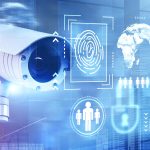Introduction
The 21st century has ushered in a radical transformation in how power is shaped and displayed. Technology, once limited to innovation and industry, now influences politics, media, and even cultural perception. Artificial intelligence, social media platforms, and global digital networks have become the new battlegrounds of influence where leaders, celebrities, and corporations compete for attention and trust.
At the same time, celebrities have stepped into roles once reserved for diplomats or political figures. Their voices carry weight in shaping international discourse, guiding movements, and redefining activism through digital platforms.
The merging of technology and celebrity influence has not only shifted the balance of global power but also blurred the boundaries between entertainment, politics, and leadership.
AI and the Redefinition of Global Leadership
Artificial intelligence has become a central tool in redefining how leadership functions in a globalized world. Governments use AI to analyze public sentiment, forecast economic trends, and respond to crises more efficiently. By integrating big data into policy-making, nations can adapt more quickly to shifting social and political landscapes.
Yet, the rapid growth of AI has sparked debates over ethical governance and data privacy. As machine intelligence becomes more embedded in public decision-making, questions arise about accountability and bias. Global leadership now depends not only on political experience but also on understanding and regulating the digital systems that drive modern governance.
Celebrities as Political Influencers
Celebrities have transcended their entertainment roles to become agents of political and social influence. Figures like Taylor Swift, Leonardo DiCaprio, and Malala Yousafzai have leveraged their massive platforms to inspire action on global issues such as climate change, gender equality, and voter participation. Their digital voices often reach audiences that traditional institutions struggle to engage.
However, this transformation has also drawn criticism. The power of celebrity activism can sometimes overshadow expert voices or reduce complex issues to viral moments. The most impactful celebrity advocates are those who sustain long-term engagement, partner with credible organizations, and use their fame as a bridge to deeper public awareness rather than self-promotion.
Technology and the Politics of Perception
Technology has become the most powerful political tool of the modern era. Algorithms, social media analytics, and AI-driven content distribution now determine what the world sees and believes. The digital manipulation of narratives can influence elections, policy decisions, and even diplomatic relations, highlighting the growing intersection between data and democracy.
This shift presents both opportunities and dangers. While technology democratizes access to information, it also enables misinformation and manipulation. Nations are increasingly focusing on digital literacy and cybersecurity as critical aspects of national defense. In the global arena, technological control now rivals traditional military or economic strength in shaping influence.
Pop Culture as a Reflection of Digital Society
Pop culture serves as a mirror reflecting the anxieties and aspirations of a tech-driven society. From dystopian films about AI to songs exploring virtual identity, entertainment often captures what society feels but cannot always articulate. Artists and filmmakers are not only entertainers but also commentators on the ethical challenges brought by technology.
Through creative storytelling, pop culture helps people grasp abstract concepts like privacy, automation, and surveillance. As technology continues to evolve, entertainment plays an essential role in making complex digital issues relatable, encouraging audiences to think critically about the world being built around them.
The Global Race for Technological Dominance
Around the world, nations are locked in competition to lead the next wave of technological innovation. Artificial intelligence, quantum computing, and renewable energy technologies have become central to national strategies. The race is not just about economic growth but about shaping the rules that will govern digital ethics, trade, and security in the decades to come.
Global cooperation remains vital, yet it is often overshadowed by rivalry. While countries invest heavily in digital infrastructure and innovation, collaboration on ethical frameworks and data protection is lagging. The global community must decide whether the future of technology will be built on unity or division.
Ethics, Responsibility, and the Digital Age
With great technological advancement comes an even greater ethical responsibility. The misuse of AI, personal data, and media manipulation poses threats that transcend borders. Technology developers, policymakers, and media leaders share the burden of ensuring digital progress aligns with human rights and fairness.
Ethical governance requires transparency, inclusivity, and accountability at all levels. Global efforts such as the UN’s digital trust initiatives and independent AI councils are steps toward establishing moral guidelines. The coming years will define whether humanity can guide innovation without losing sight of its values.
FAQs
How is AI changing global leadership?
AI allows leaders to make data-driven decisions and anticipate global shifts, but its ethical use requires strict oversight and transparency.
Why do celebrities play a growing role in politics?
Celebrities can reach millions instantly, influencing public discourse and inspiring civic participation in ways traditional media cannot.
What dangers arise from algorithmic control of information?
Algorithms can manipulate public perception by promoting biased or misleading content, making digital literacy increasingly important.
Can pop culture influence awareness of technology?
Yes, entertainment translates complex tech issues into relatable stories, encouraging reflection and public discussion on real-world implications.
How can technology be managed ethically?
Collaboration between governments, innovators, and global organizations is key to building transparent and fair technological systems.
Conclusion
The fusion of technology, politics, and celebrity influence is reshaping the foundations of global power. AI and digital communication now guide decisions that affect economies, societies, and individual freedoms. The leaders who understand this transformation are the ones most capable of navigating the complexities of modern influence.
As we move deeper into the digital age, balance and responsibility are essential. The choices humanity makes now—about technology, communication, and ethics—will determine whether innovation serves collective progress or personal ambition.






